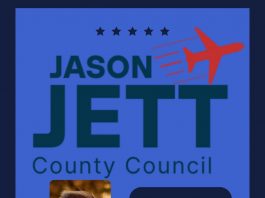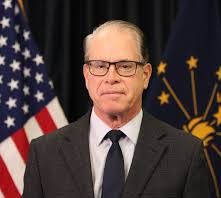Ayn Rand’s Atlas Shrugged and Its Reflection on Today’s Economy, Government Control, and Workforce Dynamics
by JOE J WALLACE
AUGUST 16, 2024
Aryn Rand’s Atlas Shrugged, published in 1957, presents a dystopian vision of a soiety where government overreach, economic mismanagement, and the systematic suppression of individual talent lead to societal collapse. Though the novel is a work of fiction, its philosophical themes resonate with contemporary discussions about the economy, government control, and the departure of top talent from the workforce. This article explores these parallels and contrasts the world of Atlas Shrugged with current realities.
The Economy: Then and Now
In Atlas Shrugged, the economy is in a state of decline, largely due to government policies that stifle innovation, entrepreneurship, and productivity. The novel’s world is one where industries are overregulated, profits are demonized, and successful entrepreneurs are taxed and burdened until they can no longer sustain their businesses. This leads to a gradual erosion of economic vitality, as fewer and fewer individuals are willing or able to contribute to the economy’s growth.
Today, the global economy faces its own set of challenges, some of which echo the issues Rand highlighted. While the current economic situation is far from the catastrophic collapse depicted in Atlas Shrugged, there are growing concerns about economic stagnation, the impact of overregulation, and the sustainability of certain fiscal policies. Governments worldwide have implemented extensive regulations to address various societal concerns, from environmental protection to financial stability. However, there is ongoing debate about whether these regulations sometimes do more harm than good, particularly when they create barriers to entry for small businesses or stifle innovation in emerging industries.
Moreover, discussions about wealth distribution, corporate taxation, and government intervention in the economy are increasingly polarized. Critics argue that excessive taxation and regulation can disincentivize productivity, much like the policies in Atlas Shrugged that punish the most successful members of society. On the other hand, proponents of these measures contend that they are necessary to address inequality and ensure a fairer distribution of resources.
Government Control: A Growing Influence?
One of the central themes of Atlas Shrugged is the extent of government control over the economy and individual lives. In the novel, the government imposes policies that force successful businesses to redistribute their wealth and resources to less successful ones, leading to widespread inefficiency and economic decline. The novel’s dystopian society is one where government overreach has led to a loss of personal freedom and the erosion of individual rights.
Today, concerns about government control manifest in various ways. In many countries, the expansion of government power—whether through regulation, surveillance, or social policies—has sparked debates about the balance between public interest and individual freedom. The COVID-19 pandemic, for example, led to unprecedented levels of government intervention in economies worldwide, with lockdowns, stimulus packages, and public health mandates reshaping daily life. While these measures were seen as necessary by many, they also raised questions about the long-term implications for personal freedom and economic autonomy.
In the realm of economic control, issues such as corporate bailouts, government subsidies, and central bank interventions are often at the forefront of debate. Critics argue that such interventions distort free markets, much like the policies in Atlas Shrugged that favor certain industries or companies at the expense of others. Supporters, however, argue that these measures are essential for stabilizing economies during crises and ensuring the broader public good.
The Exit of Top Talent: A Modern-Day Brain Drain?
One of the most striking elements of Atlas Shrugged is the “strike of the mind,” where the most talented and productive individuals—engineers, artists, entrepreneurs—withdraw from society rather than continue to support a system that exploits their abilities. John Galt, the novel’s central figure, leads this exodus, symbolizing the importance of individual talent and innovation to societal progress.
In today’s world, we see a different kind of “exit” of top talent, often referred to as a “brain drain.” This phenomenon can be observed in multiple contexts, including the migration of skilled workers from one country to another, the early retirement or resignation of highly talented individuals from the workforce, and the shift of innovators from traditional industries to more flexible, less regulated sectors such as tech startups or freelance work.
Several factors contribute to this modern-day brain drain. High taxation, restrictive regulations, and a lack of opportunities can push talented individuals to seek better conditions elsewhere, either in different countries or different sectors. Additionally, burnout, dissatisfaction with corporate culture, and a desire for greater work-life balance are leading more people to step back from traditional career paths, much like the characters in Atlas Shrugged who choose to leave a system they see as corrupt and unsustainable.
The tech industry, in particular, has seen a significant shift in talent dynamics. Many of the brightest minds are leaving established companies or academic institutions to start their own ventures, often driven by a desire for autonomy and creative freedom. This trend mirrors the novel’s emphasis on the importance of individual initiative and the dangers of stifling creativity through excessive control or collectivist policies.
Conclusion
Ayn Rand’s Atlas Shrugged offers a stark warning about the dangers of government overreach, economic mismanagement, and the suppression of individual talent. While the novel presents an extreme and dystopian scenario, its themes remain relevant in today’s discussions about the role of government in the economy, the balance between regulation and freedom, and the factors driving the departure of top talent from traditional roles.
The parallels between Rand’s fictional world and current realities suggest that the questions she raised—about the nature of freedom, the importance of individualism, and the role of government—are as pertinent now as they were in the mid-20th century. As societies continue to grapple with these issues, Atlas Shrugged serves as both a cautionary tale and a call to consider the long-term consequences of the choices we make today.




